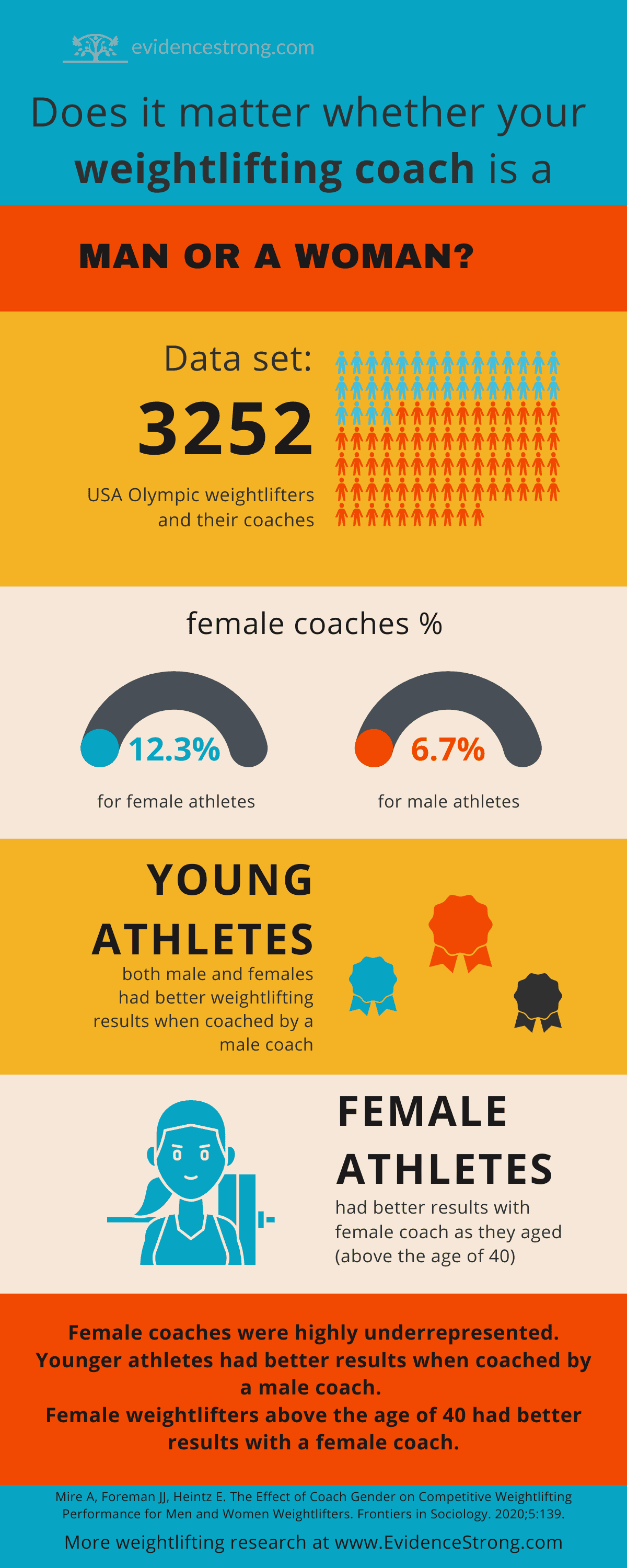Summary of an article analyzing a data set of weightlifting results for male and female athletes and the gender of their coaches.
Who
3252 Olympic weightlifters and their coaches with year-end rankings in total weight lifted for 2021 (USA).
Design
Data from the United States Weightlifting.
Outcome measures
- total lifted (weight lifted in snatch + clean & jerk)
- athlete’s weight class (Women: from <48 to 75+; Man: from <56 to 105+)
- athlete’s age
- coach’s gender
Main results
- 12.3% of female and 6.7% of male weightlifters had a female coach
- Female coach was negatively correlated with total weight lifted for both male and female athletes. Female athletes with a female coach have lifted 22 kg less than female athletes with a male coach. Male athletes with a female coach have lifted 16 kg less than male athletes with a male coach.
- For female athletes coached by a female coach as they age, every year is associated with an increase of 0.52 kg in total weight lifted. There is no similar association as male athletes age.
- In general, younger athletes (both male and female) had better weightlifting results when coached by a male coach. But female weightlifters had better results with female coach as they aged (above the age of 40).
Take home message
Interview with the author of the original article
Dr. Jeremy Foreman is an Associate Professor at University of Louisiana at Lafayette. Evidence Strong interviews Prof Jeremy Foreman about his recent study titled: The Effect of Coach Gender on Competitive Weightlifting Performance for Men and Women Weightlifters.
Original article
Mire A, Foreman JJ, Heintz E. The Effect of Coach Gender on Competitive Weightlifting Performance for Men and Women Weightlifters. Frontiers in Sociology. 2020;5:139.
You might want to read next
What do Olympic weightlifters think about their body and weight class
What happens during 10 years of Olympic weightlifting (for women)
Which weightlifting shoe won the most medals at the Tokyo Olympics?
